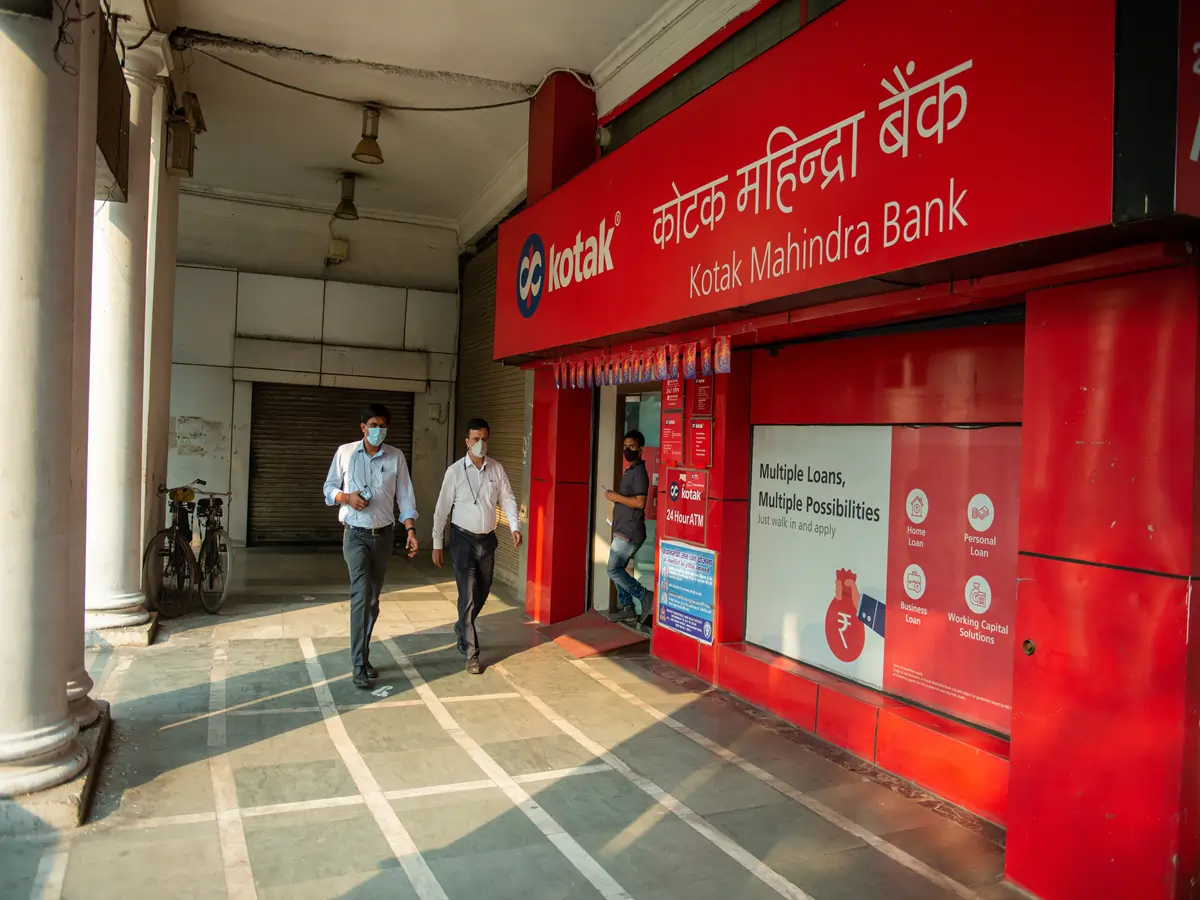Market News
Kotak Mahindra Bank shares among top losers in NIFTY50 after profit declines, provisions rise in Q2
.jpeg)
4 min read | Updated on October 27, 2025, 10:18 IST
SUMMARY
Kotak Mahindra Bank reported net profit of ₹3,253 crore in the second quarter of current financial year, marking a decline of 3% from ₹3,344 crore in the same period last year.
Stock list

Kotak Mahindra Bank's net interest margin was 4.54% for Q2FY26. Image: Shutterstock
Shares of Kotak Mahindra Bank, the country's leading private sector lender, fell nearly 3% to hit an intraday low of ₹2,122 in an otherwise strong session for markets after it reported weaker than expected earnings in the second quarter of current financial year on Saturday.
Kotak Mahindra Bank reported net profit of ₹3,253 crore in the second quarter of current financial year, marking a decline of 3% from ₹3,344 crore in the same period last year.
The decline in profit came on the back of higher provisions during the quarter. The bank's provisions for bad loans during the quarter jumped by 43% to ₹947 crore from ₹660 crore in the year-ago period.
The Mumbai-based lender's net interest income or the difference between interest earned on loans and expended on deposits rose 4.15% to ₹7,311 crore in July-September period from ₹7,020 crore in the same period last year.
Net interest margin was 4.54% for Q2FY26. Cost of funds was 4.70% for Q2FY26.
Kotak Mahindra Bank's showed an improvement in asset quality during the quarter as its gross non-performing assets (NPA), as a percentage of total advances, came in at 1.39% compared with 1.49% in the year-ago period. Its net NPA came in at 0.32% as against 0.43% in the year-ago period.
In absolute terms gross NPA were ₹6,479.58 crore compared with 6,033.17 crore in the same period last year.
Morgan Stanley maintained positive stance on the stock highlighting the broad-based loan growth and moderation in asset quality stress. The global investment firm noted that net interest margin (NIM) fell 11 basis points (bps) sequentially as the unsecured loans mix moderated but it believes that margins are the “only catalyst left” and expects an inflection from next quarter. It foresees re-rating potential as earnings outperformance accelerates.
Macquarie maintained a cautious tone, stating that core pre-provision operating profit (PPOP) was in line, while the PAT miss was driven by treasury losses. However, the decline in credit costs was supported by lower slippages and higher recoveries. It expects margin improvement in coming quarters due to term deposit repricing, growth in unsecured segments and the benefit of the CRR cut.
UBS viewed the quarter as broadly in line, noting that lower non-interest income was offset by lower operating expenses. It pointed out that loan growth outpaced large private peers, with CASA ratio rising 140 bps QoQ. UBS said management expects credit cost moderation to continue, though it remains watchful of rising stress in the retail commercial vehicle portfolio. The bank plans to gradually expand its unsecured loan book as asset quality stabilises.
Jefferies sad that second quarter profit of ₹3,300 crore was down 3% YoY but were better than estimates due to stronger NII, lower opex, and credit costs. Loan growth was robust at 16% YoY, offsetting weaker NIM (down 11 bps QoQ). The brokerage noted improving credit quality with slippages at 1.6% and credit costs moderating to 0.9% of average loans. However, it trimmed FY26–28 earnings estimates by 2–3%, citing lower ROE (13%) versus peers and limited valuation re-rating potential.
CLSA called Q2 a “mixed quarter”, as PBT was 3% below estimates due to treasury losses, though core PBT beat by 2%. Loan growth stayed steady at 13% YoY and NIM compression was as expected. Operating expenses remained under control, while CASA ratio stabilized after several quarters of decline — a possible early sign of reversal. However, fee income growth remained sluggish, which CLSA noted as a drag on return ratios.
BoFA expects RoA improvement driven by stable-to-rising NIM and normalised asset quality, with the bank well-positioned to benefit from a macro recovery. The brokerage sees positive risk-reward, with both top-down and bottom-up catalysts aligning.
About The Author
Next Story


